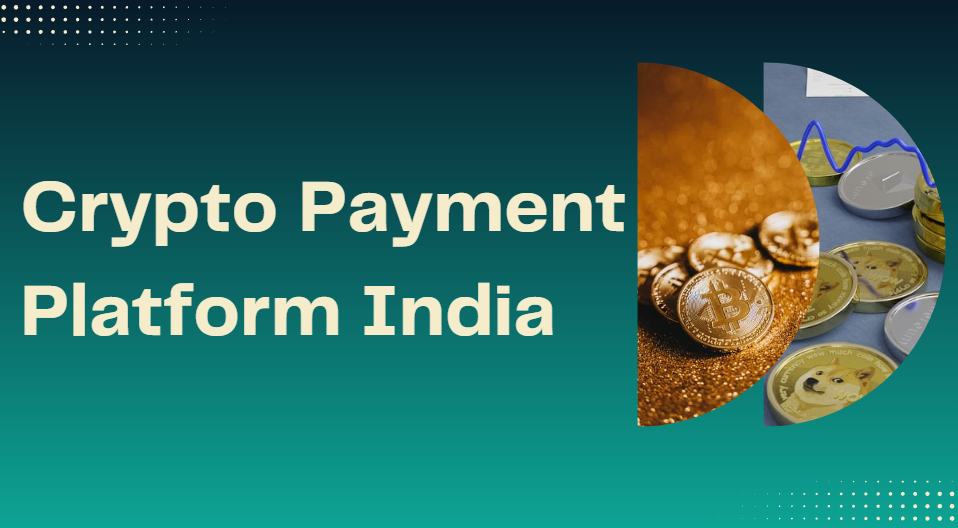AUTHOR- ELIZA FERNZ
DATE- 27/8/2024
INTRODUCTION
In recent years, cryptocurrencies have shifted from niche digital assets to mainstream financial instruments. One country that has been at the forefront of this transformation is India, a burgeoning market with a tech-savvy population and an increasingly favorable regulatory environment(1). Among the many innovations emerging in the Indian financial landscape, crypto payment platforms are standing out as a game-changer. This blog explores the rise of these platforms, their impact on the Indian economy, and what the future might hold.
The Crypto Payment Revolution
Crypto payment platforms are digital systems that facilitate transactions using cryptocurrencies, such as Bitcoin, Ethereum, and a growing array of altcoins. These platforms offer a range of services, from enabling businesses to accept crypto payments to allowing consumers to make purchases with their digital assets. In India, the adoption of these platforms is being driven by several factors:
- Increased Crypto Adoption: India has seen a significant rise in cryptocurrency ownership(2) and usage. With millions of new investors entering the market annually, there’s a growing demand for practical solutions to use their crypto holdings for everyday transactions.
- Technological Advancements: The proliferation of smartphones and digital wallets has made it easier for people to interact with cryptocurrencies. Many Indian crypto payment platforms leverage these technologies to offer seamless and user-friendly experiences.
- Regulatory Clarity: Although the regulatory landscape for cryptocurrencies in India has been historically ambiguous, recent developments suggest a move towards clearer guidelines. The government’s willingness to engage with industry stakeholders(3) is paving the way for a more structured and supportive regulatory environment.
Key Players in the Indian Market
Several notable crypto payment platforms are making waves in India:
- Unocoin: Known for its user-friendly interface, Unocoin enables users to buy, sell, and spend Bitcoin. It has also introduced a Bitcoin payment gateway for merchants, allowing them to accept Bitcoin payments easily.
- WazirX: As one of India’s largest crypto exchanges, WazirX has integrated payment solutions that allow users to make purchases using their crypto holdings. Its partnership with Binance(4) further strengthens its position in the market.
- Koinex: Although primarily a crypto exchange, Koinex offers payment solutions that facilitate the use of cryptocurrencies in daily transactions. Its focus on liquidity and security makes it a popular choice among users.
- Pundi X: This global company has also made its mark in India, offering point-of-sale (POS) terminals that allow merchants to accept a variety of cryptocurrencies. This innovation(5) is particularly significant for small and medium-sized enterprises looking to enter the crypto space.

Advantages of Crypto Payments
- Lower Transaction Fees: Traditional payment systems often involve high transaction fees, especially for cross-border transactions. Cryptocurrencies can significantly reduce these costs due to their decentralized nature.
- Faster Transactions: Crypto transactions can be completed in minutes, compared to the days required for international wire transfers. This speed is particularly beneficial for businesses with global operations.
- Increased Security: Cryptocurrencies use advanced encryption techniques to secure transactions, reducing the risk of fraud and chargebacks that can be prevalent in traditional payment systems.
- Financial Inclusion: Crypto payment platforms can offer financial services to those without access to traditional banking systems. In India, where a significant portion of the population is unbanked or underbanked, this is a crucial benefit.

Challenges and Considerations
Despite their advantages, crypto payment platforms face several challenges:
- Regulatory Uncertainty: While the regulatory environment is improving, it remains a concern for many businesses and users. Clear and consistent regulations are needed to foster growth and protect investors.
- Volatility: Cryptocurrencies are known for their price volatility, which can pose risks for both consumers and businesses. Managing this volatility is a key challenge for payment platforms.
- Adoption Barriers: While the number of crypto users is growing, mass adoption still faces hurdles such as lack of awareness and understanding of cryptocurrencies among the general population.
Looking Ahead
The future of crypto payment platforms in India looks promising. As the regulatory framework becomes clearer and technological innovations continue to evolve, these platforms are expected to play a significant role in the Indian financial ecosystem. Businesses and consumers alike will benefit from the efficiency, security, and convenience that crypto payments offer.
The rise of crypto payment platforms in India is a testament to the country’s growing embrace of digital innovation. By addressing the current challenges and leveraging emerging opportunities, India can lead the way in integrating cryptocurrencies into everyday financial transactions. For those navigating this exciting frontier, staying informed and adaptable will be key to harnessing the full potential of crypto payments.
Conclusion
The journey of crypto payment platforms in India is just beginning, but the trajectory is undeniably upward. As these platforms continue to evolve and gain traction, they promise to reshape how transactions are conducted, bridging the gap between traditional finance and the digital future. For businesses and consumers in India, this is an opportune moment to explore and embrace the possibilities of crypto payments.
FAQS
1. What is a crypto payment platform?
A crypto payment platform is a digital service that enables transactions using cryptocurrencies. These platforms allow businesses to accept payments in digital currencies and provide consumers with the ability to use their crypto holdings for everyday purchases. They typically include features such as payment gateways, digital wallets, and point-of-sale systems.
2. How do crypto payment platforms work?
Crypto payment platforms work by facilitating transactions between buyers and sellers using cryptocurrencies. Here’s a simplified process:
- For Businesses: A business integrates a crypto payment gateway or POS system, allowing it to accept payments in cryptocurrencies.
- For consumers: Customers select cryptocurrency as a payment option during checkout. The platform processes the transaction, converting the crypto into the local currency if needed or directly transferring the crypto to the merchant’s wallet.




